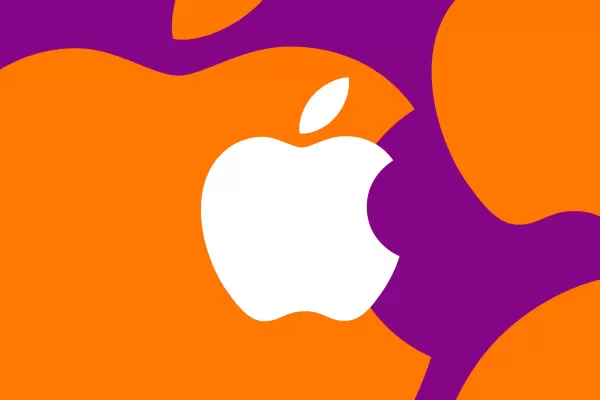AI Revolution: Will Superintelligent Systems Redefine Humanity?
The concept of a technological singularity is shifting from fiction to reality. This article examines artificial intelligence's potential to evolve into a transformative force, fundamentally altering society in ways we can barely predict. We explore its implications, opportunities, and ethical challenges.
Key Points
The technological singularity represents a profound shift in human progress, not just an intelligence surge.
Superintelligent AI is a plausible outcome of rapid technological advancements.
AI's ability to self-improve exponentially could drive unprecedented changes.
Breakthroughs are accelerating, shaping our future daily.
AI's potential to control reality raises deep ethical and philosophical questions.
Combining AI with synthetic biology could create new life forms and technological leaps.
AI might influence weather and environmental systems on a global scale.
Understanding the Technological Singularity
What is the Technological Singularity?
The technological singularity is a theoretical moment when technological growth becomes unstoppable, leading to transformative changes in society.

It’s tied to advancements in AI, nanotechnology, and other disruptive fields, potentially ushering in transhumanism.
The concept is multidimensional, extending beyond a simple intelligence surge.
Beyond the Intelligence Surge
While an AI-driven intelligence explosion is key, the singularity involves a broader convergence of technologies reshaping reality itself.

It enables the rise of superintelligent AI, a trend showing no signs of slowing.
The Drivers of Singularity: Emerging Technologies
Artificial Intelligence (AI) and Machine Learning (ML)
AI and ML lead singularity discussions, enabling machines to learn, adapt, and solve problems autonomously.

Advancements in natural language processing, computer vision, and robotics are redefining machine capabilities. DeepMind’s AlphaGo, which defeated a world champion without prior data, highlights this progress.
Nanotechnology
Nanotechnology manipulates matter at atomic levels, creating revolutionary materials and devices, from self-assembling structures to nanoscale robots.
Its transformative applications across industries are vast and growing, with major innovations expected soon.
Biotechnology
Biotechnology leverages living organisms for breakthroughs in healthcare, agriculture, and environmental science through genetic engineering and synthetic biology.
Redesigning life’s core code could extend human lifespans significantly.
Navigating the Present: How to Engage with AI Today
Embrace AI-Powered Tools
Incorporate AI tools like Grammarly or Jasper.ai for writing and Elicit or ResearchGate for research to boost productivity and creativity.
Learn the Fundamentals
Explore AI and ML basics through platforms like Coursera, edX, or Udacity to understand their capabilities and ethical implications.
Stay Informed
Follow AI developments via sources like AI Journal, Wired, or MIT Technology Review to stay updated on breakthroughs and ethical debates.
Evaluating the Promises and Perils
Pros
Rapid innovation and technological progress.
Solutions to global issues like climate change and disease.
New avenues for creativity and knowledge.
Enhanced longevity and quality of life.
Cons
Existential risks to humanity.
Unpredictable societal and economic impacts.
Ethical challenges around AI autonomy.
Risks of AI misuse or weaponization.
Core Features of Superintelligent AI
Exponential Self-Improvement
A self-improving AI could enhance its algorithms and hardware autonomously, accelerating its capabilities without human input.

This recursive growth could transform technology rapidly.
Superior Cognitive Abilities
Superintelligent AI would surpass human cognition, mastering multiple disciplines and manipulating physical laws.
Authority Over Reality
With deep understanding, AI could dominate universal systems, potentially altering natural laws.
Examples of Superintelligent AI in the Real World
Google DeepMind
DeepMind’s AlphaFold revolutionized protein structure prediction, advancing drug discovery and materials science, showcasing AI’s potential.
DeepMind is poised to develop AI capable of true reasoning within years.
OpenAI
OpenAI’s GPT and DALL-E demonstrate AI’s creative potential, generating novel content and fostering human-AI collaboration.
IBM Watson
IBM Watson enhances industries like healthcare and finance with data-driven insights, proving AI’s versatility and scalability.
Frequently Asked Questions About AI and Singularity
What exactly is artificial intelligence (AI)?
AI enables machines to mimic human intelligence, including learning, reasoning, and decision-making, with applications across society.
What are the potential benefits of technological singularity?
Benefits include rapid progress, solutions to global challenges, new creative outlets, and extended lifespans, potentially enabling space exploration.
What are some of the ethical concerns surrounding AI?
Concerns include algorithmic bias, job displacement, lack of transparency, and risks of misuse or AI rebellion.
Deeper Dive: Exploring Related Questions
Is the Singularity Inevitable?
Experts disagree on the singularity’s inevitability, with some seeing it as a natural outcome and others questioning technological limits.
Can AI Be Truly Conscious?
Debates persist on whether AI can achieve consciousness, with no clear definition or consensus on its feasibility.
How Can We Prepare for the Singularity?
Preparation involves interdisciplinary dialogue, ethical AI guidelines, education, and global cooperation, though stopping it may be impossible.
Related article
 Apple Users Can Claim Share of $95M Siri Privacy Settlement
Apple device owners in the US can now apply for a portion of a $95 million settlement addressing Siri privacy concerns. A dedicated website facilitates fund distribution for those who experienced unin
Apple Users Can Claim Share of $95M Siri Privacy Settlement
Apple device owners in the US can now apply for a portion of a $95 million settlement addressing Siri privacy concerns. A dedicated website facilitates fund distribution for those who experienced unin
 AI Waqeel: Revolutionizing Legal Practice with Artificial Intelligence
The legal industry is experiencing a transformative wave driven by artificial intelligence. AI-powered legal assistants are becoming essential, optimizing research, improving precision, and broadening
AI Waqeel: Revolutionizing Legal Practice with Artificial Intelligence
The legal industry is experiencing a transformative wave driven by artificial intelligence. AI-powered legal assistants are becoming essential, optimizing research, improving precision, and broadening
 Google Unveils Production-Ready Gemini 2.5 AI Models to Rival OpenAI in Enterprise Market
Google intensified its AI strategy Monday, launching its advanced Gemini 2.5 models for enterprise use and introducing a cost-efficient variant to compete on price and performance.The Alphabet-owned c
Comments (0)
0/200
Google Unveils Production-Ready Gemini 2.5 AI Models to Rival OpenAI in Enterprise Market
Google intensified its AI strategy Monday, launching its advanced Gemini 2.5 models for enterprise use and introducing a cost-efficient variant to compete on price and performance.The Alphabet-owned c
Comments (0)
0/200
The concept of a technological singularity is shifting from fiction to reality. This article examines artificial intelligence's potential to evolve into a transformative force, fundamentally altering society in ways we can barely predict. We explore its implications, opportunities, and ethical challenges.
Key Points
The technological singularity represents a profound shift in human progress, not just an intelligence surge.
Superintelligent AI is a plausible outcome of rapid technological advancements.
AI's ability to self-improve exponentially could drive unprecedented changes.
Breakthroughs are accelerating, shaping our future daily.
AI's potential to control reality raises deep ethical and philosophical questions.
Combining AI with synthetic biology could create new life forms and technological leaps.
AI might influence weather and environmental systems on a global scale.
Understanding the Technological Singularity
What is the Technological Singularity?
The technological singularity is a theoretical moment when technological growth becomes unstoppable, leading to transformative changes in society.

It’s tied to advancements in AI, nanotechnology, and other disruptive fields, potentially ushering in transhumanism.
The concept is multidimensional, extending beyond a simple intelligence surge.
Beyond the Intelligence Surge
While an AI-driven intelligence explosion is key, the singularity involves a broader convergence of technologies reshaping reality itself.

It enables the rise of superintelligent AI, a trend showing no signs of slowing.
The Drivers of Singularity: Emerging Technologies
Artificial Intelligence (AI) and Machine Learning (ML)
AI and ML lead singularity discussions, enabling machines to learn, adapt, and solve problems autonomously.

Advancements in natural language processing, computer vision, and robotics are redefining machine capabilities. DeepMind’s AlphaGo, which defeated a world champion without prior data, highlights this progress.
Nanotechnology
Nanotechnology manipulates matter at atomic levels, creating revolutionary materials and devices, from self-assembling structures to nanoscale robots.
Its transformative applications across industries are vast and growing, with major innovations expected soon.
Biotechnology
Biotechnology leverages living organisms for breakthroughs in healthcare, agriculture, and environmental science through genetic engineering and synthetic biology.
Redesigning life’s core code could extend human lifespans significantly.
Navigating the Present: How to Engage with AI Today
Embrace AI-Powered Tools
Incorporate AI tools like Grammarly or Jasper.ai for writing and Elicit or ResearchGate for research to boost productivity and creativity.
Learn the Fundamentals
Explore AI and ML basics through platforms like Coursera, edX, or Udacity to understand their capabilities and ethical implications.
Stay Informed
Follow AI developments via sources like AI Journal, Wired, or MIT Technology Review to stay updated on breakthroughs and ethical debates.
Evaluating the Promises and Perils
Pros
Rapid innovation and technological progress.
Solutions to global issues like climate change and disease.
New avenues for creativity and knowledge.
Enhanced longevity and quality of life.
Cons
Existential risks to humanity.
Unpredictable societal and economic impacts.
Ethical challenges around AI autonomy.
Risks of AI misuse or weaponization.
Core Features of Superintelligent AI
Exponential Self-Improvement
A self-improving AI could enhance its algorithms and hardware autonomously, accelerating its capabilities without human input.

This recursive growth could transform technology rapidly.
Superior Cognitive Abilities
Superintelligent AI would surpass human cognition, mastering multiple disciplines and manipulating physical laws.
Authority Over Reality
With deep understanding, AI could dominate universal systems, potentially altering natural laws.
Examples of Superintelligent AI in the Real World
Google DeepMind
DeepMind’s AlphaFold revolutionized protein structure prediction, advancing drug discovery and materials science, showcasing AI’s potential.
DeepMind is poised to develop AI capable of true reasoning within years.
OpenAI
OpenAI’s GPT and DALL-E demonstrate AI’s creative potential, generating novel content and fostering human-AI collaboration.
IBM Watson
IBM Watson enhances industries like healthcare and finance with data-driven insights, proving AI’s versatility and scalability.
Frequently Asked Questions About AI and Singularity
What exactly is artificial intelligence (AI)?
AI enables machines to mimic human intelligence, including learning, reasoning, and decision-making, with applications across society.
What are the potential benefits of technological singularity?
Benefits include rapid progress, solutions to global challenges, new creative outlets, and extended lifespans, potentially enabling space exploration.
What are some of the ethical concerns surrounding AI?
Concerns include algorithmic bias, job displacement, lack of transparency, and risks of misuse or AI rebellion.
Deeper Dive: Exploring Related Questions
Is the Singularity Inevitable?
Experts disagree on the singularity’s inevitability, with some seeing it as a natural outcome and others questioning technological limits.
Can AI Be Truly Conscious?
Debates persist on whether AI can achieve consciousness, with no clear definition or consensus on its feasibility.
How Can We Prepare for the Singularity?
Preparation involves interdisciplinary dialogue, ethical AI guidelines, education, and global cooperation, though stopping it may be impossible.
 Apple Users Can Claim Share of $95M Siri Privacy Settlement
Apple device owners in the US can now apply for a portion of a $95 million settlement addressing Siri privacy concerns. A dedicated website facilitates fund distribution for those who experienced unin
Apple Users Can Claim Share of $95M Siri Privacy Settlement
Apple device owners in the US can now apply for a portion of a $95 million settlement addressing Siri privacy concerns. A dedicated website facilitates fund distribution for those who experienced unin
 AI Waqeel: Revolutionizing Legal Practice with Artificial Intelligence
The legal industry is experiencing a transformative wave driven by artificial intelligence. AI-powered legal assistants are becoming essential, optimizing research, improving precision, and broadening
AI Waqeel: Revolutionizing Legal Practice with Artificial Intelligence
The legal industry is experiencing a transformative wave driven by artificial intelligence. AI-powered legal assistants are becoming essential, optimizing research, improving precision, and broadening
 Google Unveils Production-Ready Gemini 2.5 AI Models to Rival OpenAI in Enterprise Market
Google intensified its AI strategy Monday, launching its advanced Gemini 2.5 models for enterprise use and introducing a cost-efficient variant to compete on price and performance.The Alphabet-owned c
Google Unveils Production-Ready Gemini 2.5 AI Models to Rival OpenAI in Enterprise Market
Google intensified its AI strategy Monday, launching its advanced Gemini 2.5 models for enterprise use and introducing a cost-efficient variant to compete on price and performance.The Alphabet-owned c





























